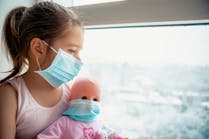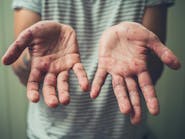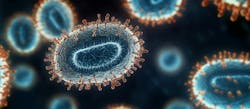The Ebola outbreak continues to intensify, the WHO said, as DRC health officials reported 21 more cases. The illnesses push the overall outbreak total to 1,760, as health officials investigate 310 suspected cases. Fourteen more people died from Ebola, seven in community settings and seven in Ebola treatment centers. The fatality count now stands at 1,161.
A study on the blood of Ebola survivors detailed how antibodies continue to evolve, months after hospitalization, findings that could help fine-tune vaccines and treatments.
The detailed study of antibodies produced by Ebola survivors was based on blood samples of four Ebola responders who got sick while working in West Africa's outbreak and were treated at Emory University Hospital in 2014. A team from Emory, Stanford University, the University of Wisconsin, the CDC, and the U.S. Army published its findings in an early online edition of Cell.
The scientists found that high levels of neutralizing antibodies—thought to play a key role in protection—didn't appear in patients' blood until months after they left the hospital. The antibodies they identified might help establish a benchmark of immune protection after vaccination and guide the design of therapies and vaccines.
Duration of protection from the vaccine and how to gauge protection have been unclear, with some studies suggesting that neutralizing antibodies decline several months after vaccination.
Carl Davis, PhD, postdoctoral fellow at Emory Vaccine Center and the study's first author, said in an Emory press release that what researchers saw after tracking how antibodies evolved in the survivors is different than after vaccination. "We did not previously appreciate how long it takes to get to an optimal antibody response after infection," he added.
When the four patients were acutely sick, they produced abundant antibodies that bound to Ebola virus proteins, but high neutralizing antibody production didn't kick in for several months. The researchers said that, over time, antibodies changed the parts of the virus they targeted and how tightly they bound to them. Regions of the antibodies that recruited other immune components also continued to evolve.
Of the four Ebola patients treated at Emory, two got very sick and a third was even sicker, requiring renal replacement therapy and respiratory support.
Davis said, "What was unexpected is that we saw a lot of similarity between the four people, in terms of their antibody responses."




